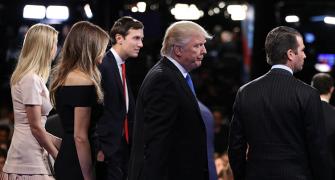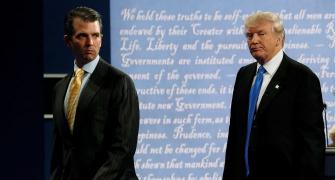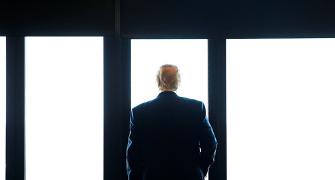
Jared Kushner, the son-in-law and senior advisor of United States President Donald Trump, on Monday flatly denied colluding with Russia during the 2016 election, saying he had no “improper” contacts with the Russian officials.
Giving a detailed explanation, Kushner in an 11-page statement said he hopes that that he has been able to demonstrate the entirety of his “limited contacts with Russian representatives during the campaign and transition”.
Kushner’s statement came hours before his meeting with the Senate Intelligence Committee staff.
“It has been my practice not to appear in the media or leak information in my own defence. I have tried to focus on the important work at hand and serve this President and this country to the best of my abilities,” Kushner said.
“I did not collude, nor know of anyone else in the campaign who colluded, with any foreign government. I had no improper contacts. I have not relied on Russian funds to finance my business activities in the private sector,” Kushner said.
Kushner said that the record and documents he provided to the committee shows that he had perhaps four contacts with Russian representatives out of thousands during the campaign and transition, none of which were impactful in any way to the election or particularly memorable.
The president’s son-in-law said over the last six months he made every effort to provide the Federal Bureau of Investigation with whatever information was needed to investigate his background.
Kushner said in the week before the inauguration, amid the scramble of finalising the unwinding of his involvement from his company, moving his family to Washington, completing the paper work to divest assets and resign from his outside positions and complete his security and financial disclosure forms, people at his New York office were helping him find the information and organise it, review it and put it into the
electronic form.
“They sent an e-mail to my assistant in Washington, communicating that the changes to one particular section were complete; my assistant interpreted that message as meaning that the entire form was completed. At that point, the form was a rough draft and still had many omissions including not listing any foreign government contacts and even omitted the address of my father-in-law (which was obviously well known).
Because of this miscommunication, my assistant submitted the draft on January 18, 2017,” he explained.
That evening, Kushner said, when his team realised the form had been submitted prematurely, they informed the transition team that they needed to make changes and additions to the form.
The very next day, January 19, 2017, they submitted supplemental information to the transition, which confirmed receipt and said they would immediately transmit it to the
FBI.
“The supplement disclosed that I had “numerous contacts with foreign officials” and that we were going through my records to provide an accurate and complete list. I provided a list of those contacts in the normal course, before my background investigation interview and prior to any inquiries or media reports about my form,” he said.
“It has been reported that my submission omitted only contacts with Russians. That is not the case,” Kushner said.
“In the accidental early submission of the form, all foreign contacts were omitted. The supplemental information later disclosed over one hundred contacts from more than twenty countries that might be responsive to the questions on the form. These included meetings with individuals such as Jordan’s King Abdullah II, Israel’s Prime Minister Bibi Netanyahu, Mexico’s Secretary of Foreign Affairs Luis Videgaray Caso and many more. All of these had been left off before,” said the top presidential aide.
Image: White House Senior Adviser Jared Kushner departs following his appearance before a closed session of the Senate Intelligence Committee as part of their probe into Russian meddling in the 2016 US presidential election, on Capitol Hill in Washington, DC. Photograph: Aaron P Bernstein/Reuters









